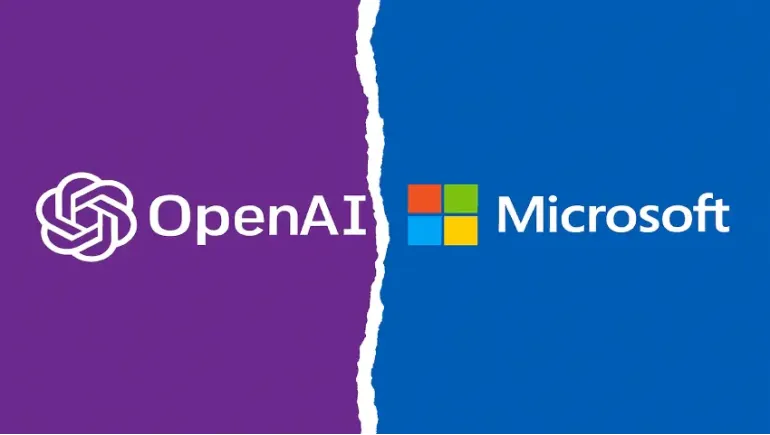
OpenAI, one of the world’s leading artificial intelligence research organizations, has announced a significant restructuring plan aimed at reinforcing its non-profit roots. A central part of this transformation is the reduction of Microsoft’s revenue share, signaling a shift in priorities as OpenAI continues to expand the global impact of its AI technologies.
Since its inception in 2015, OpenAI has straddled the line between non-profit ideals and for-profit sustainability. In 2019, it introduced a "capped-profit" model through OpenAI LP, enabling the organization to attract significant investments while limiting financial returns to backers. Microsoft, a key strategic partner, invested over $13 billion, gaining access to OpenAI’s models and receiving a share of revenue generated through commercialization, such as through Azure AI and products like Copilot in Microsoft 365.
However, with the explosive success of ChatGPT, DALL·E, and other AI tools, OpenAI's mission and business structure have been under renewed scrutiny. Critics and AI ethicists have raised questions about whether profit motives may compromise safety, transparency, or long-term alignment with public benefit.
The restructuring involves reallocating revenue flows and reducing Microsoft's share of commercial returns. According to insiders, this move will allow OpenAI to:
Though Microsoft remains a vital partner and infrastructure provider, the reduced financial entanglement is expected to give OpenAI more flexibility in making mission-driven decisions.
For Microsoft, the decision may seem like a setback, but it's unlikely to unravel the partnership. Microsoft still holds exclusive rights to integrate OpenAI models into Azure and its suite of enterprise tools. However, a smaller revenue share could shift Microsoft's focus toward developing proprietary models, further expanding its internal AI capabilities via Microsoft Research and its AI division.
The change may also encourage Microsoft to diversify its AI collaborations and make larger plays in open-source AI, as seen with increasing investments in models like Phi and Orca.
This revenue restructuring reflects OpenAI’s commitment to AI safety, accessibility, and transparency. By reducing financial pressure from investors and shareholders, OpenAI can pursue long-term research goals without compromising ethics or inclusivity.
In the wake of this shift, OpenAI is expected to:
Cutting Microsoft’s revenue share is more than a financial maneuver—it’s a declaration of intent. OpenAI appears to be realigning with its founding principles, ensuring that the development and deployment of AGI (Artificial General Intelligence) benefits all of humanity. Whether this shift will bring lasting structural balance between commercial viability and ethical responsibility remains to be seen. But it’s a step in the right direction at a critical moment in the evolution of AI.



-112x63.27.webp)




-132x74.57.webp)



Comments
There are no comments for this Article.